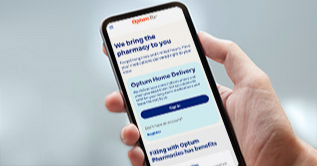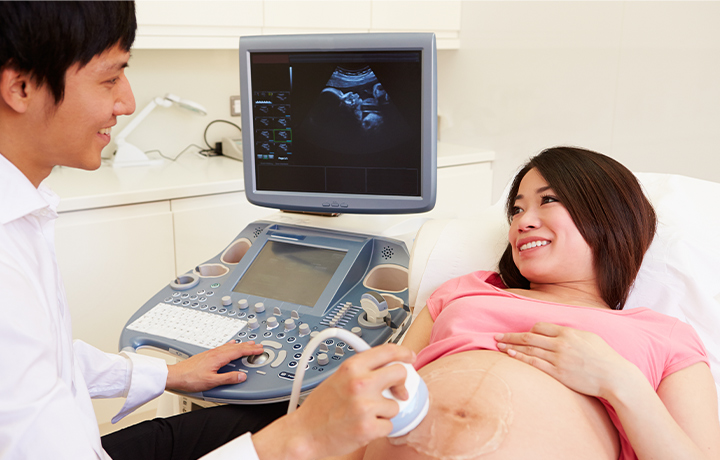OB-GYN FAQ
An OB-GYN takes care of women's health needs from teen years to menopause, including:
- Abnormal uterine bleeding
- Adolescent gynecology and counseling
- Bladder issues
- Bone density testing (for osteoporosis)
- Breast cancer and ovarian cancer screening
- Contraception (birth control) counseling, medication and procedures
- Diagnostic ultrasound
- Fitness, dietary and nutrition counseling
- Heavy periods
- Immunizations (including Gardasil)
- Infertility
- Menopause management
- Ovarian cysts
- Pap tests and cervical cancer screening
- Pelvic pain
- Pregnancy care
- Premenstrual syndrome (PMS) management
- Routine and early exams
- Sexually transmitted disease (STD) screening
- Urinary incontinence
Yes, OB-GYNs are trained in surgery and medical procedures such as:
- Advanced laparoscopic and hysteroscopic surgery: Minimally invasive options
- Colposcopy: A test to look at cells in the cervix, vagina and vulva
- Dilation and curettage (D&C): Removal of abnormal tissue from inside the uterus
- Endometriosis resection: Removal of endometrial patches (displaced uterine lining) on and around your ovaries, fallopian tubes, bladder, intestines and abdomen
- Hysterectomy: Removal of the uterus
- Loop electrosurgical excision (LEEP): Removal of abnormal tissue on the surface of the cervix
- Myomectomy: Removal of non-cancerous growths in the uterus called uterine fibroids or leiomyomas
- NovaSure: Customized type of endometrial ablation procedure
- Sacrocolpopexy: Repair of pelvic organ prolapse, a weakening of pelvic muscles commonly caused by menopause, childbirth or a hysterectomy
- Urogynecology: Includes pelvic reconstructive surgery
- Uterine endometrial ablation: Removal of a thin layer of tissue (endometrium) that lines the uterus to stop or reduce heavy menstrual bleeding
- Uterine fibroid embolization: Shrinking of uterine fibroids by blocking off their blood supply
Check with your local clinic to find out if these procedures are offered in your area.
Scheduling a visit with your OB-GYN when you’re thinking about getting pregnant can be helpful for:
- Getting your body ready for pregnancy and taking prenatal vitamins and supplements, such as folic acid
- Testing for medical conditions that may be passed on to your baby
- Checking if you have a high-risk pregnancy due to high blood pressure or diabetes
Getting good care during and after your pregnancy can help keep both you and your baby healthy.
The recommended visit schedule for prenatal visits is:
- 8-12 weeks of pregnancy
- Regular checkups every 4 weeks until week 28
- From week 28 to 36, schedule OB-GYN visits every 2 weeks
- Then weekly from week 36 until delivery.
During your prenatal visits, we'll talk about several topics including:
- Birthing options
- Family planning
- Prenatal classes
- Labor and delivery care
- Fetal monitoring
- Breastfeeding
- Obstetrical anesthesia
- Male infant circumcision
- Postpartum care
- Postpartum depression
- Postpartum hemorrhage
Perinatal conditions are high-risk health issues that need special care by a perinatal specialist. At Optum, we offer fetal motoring and treatment leading up to high-risk pregnancy and after the delivery. Our perinatal specialists treat risk factors and conditions including:
- Blood disorders
- Diabetes and other serious preexisting conditions
- Maternal age: Special care for women under 17 and over 35
- Maternal weight: Being over- or underweight
- Preeclampsia: A condition characterized by high blood pressure
- Preterm birth: When labor starts between weeks 20 and 37
- Slowed growth of the baby and low birth weight
Check with your local clinic to find out if these procedures are offered in your area.
Talk to your doctor about what to expect during labor and delivery. Together, you can create a birth plan that may cover:
- Whether to have a vaginal delivery or caesarean after having a C-section for a previous delivery
- Where you want to deliver your baby
- When you should go to the hospital
- What, if any, help you want with pain during labor
- Who you want with you during delivery
For many, doulas and midwives are an important part of a birth plan, especially if you prefer a natural or non-hospital birth. Midwives and doulas can provide:
- Individualized education
- Counseling and prenatal care
- Better chances of having a natural birth
- Continuous hands-on assistance during labor and delivery
- Reduced need for intervention, drugs and even caesarean birth (pain management techniques)
- Postpartum and breastfeeding support
- Lower costs for both clients and insurers
Please note: Working with a midwife may not be an option for some women due to their personal health histories/situations. Consult your gynecologist about your birth plan.
At Optum, our certified nurse-midwives do more than deliver babies. They are trained to offer holistic and comprehensive gynecological care for life, including:
- Annual check-ups
- Health screenings
- Family planning
- Obstetric care
- Menopause symptom management
- Senior care
Check with your local clinic to find out if these procedures are offered in your area.
Regular screening is the most reliable way to find breast cancer early and care for it successfully.
- Ages 40–44: You have the option to start annual mammograms
- Ages 45–54: You should get a mammogram every year
- Age 55 and older: You can switch to every two years, or continue yearly screening based on your preference and health status
If you’re at higher risk (due to family history, genetic factors, or past chest radiation), talk to your doctor about starting earlier or having additional screening.
Helpful OB-GYN resources

8 tips for a healthy pregnancy
Are you expecting? You may have a lot of questions about how to give your baby a healthy start in life. Here’s some important advice for moms-to-be.

Mom brain: What happens after pregnancy
“Mom brain” is real, but it should get better over time. Knowing why it’s happening and creating the right coping strategies can help you get through it.

How do you raise a healthy child?
Learn more about the basics of children’s health, including healthy eating, regular activity and vaccinations.

Family health tips from doctors who are also moms
Find out how real doctors like to keep their own families healthy with these 8 expert tips.
Optum arranges for or provides medical and other clinical services in accordance with the laws of each state in which it operates. Physicians or providers referenced on this website are either part of independent practices or of medical practices managed by or owned, where permitted, by Optum. In all circumstances, physicians and other licensed professionals have complete authority for all medical decision-making and patient care. Optum does not determine or set the methods, standards or conduct of the practice of medicine or health care provided by any of the practices or their physicians or other licensed professionals.




